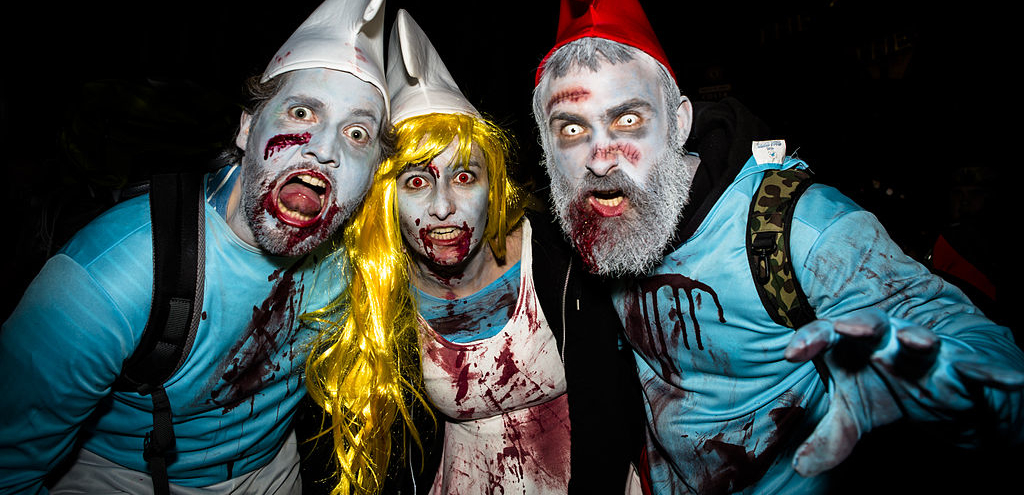By Jacob Saylor

During the time Galileo was being presented by Theatre AUM, I went and experienced this two-hour play. Since Galileo had already been showing for almost two weeks, I was quite surprised to see that the theater itself was packed almost to capacity. My hopes immediately shot through the roof, as a play still seeing this kind of attendance must surely be something else, right?
 At the beginning of the play was a short musical number, which I had not expected. Galileo, which featured a scientific mind at its center, took on an entirely different feeling than I had been anticipating. While this was a bit surprising, it did not take away from the experience in the least. In fact, it was very cool to see a number of my classmates burst out of their veritable shells through song and dance. Throughout the play, there were a few of these numbers, each featuring their own unique characteristics. One had a number of students juggle colored papers, while another had them form a conga line while singing along to “Age of Aquarius” by Ren Woods.
At the beginning of the play was a short musical number, which I had not expected. Galileo, which featured a scientific mind at its center, took on an entirely different feeling than I had been anticipating. While this was a bit surprising, it did not take away from the experience in the least. In fact, it was very cool to see a number of my classmates burst out of their veritable shells through song and dance. Throughout the play, there were a few of these numbers, each featuring their own unique characteristics. One had a number of students juggle colored papers, while another had them form a conga line while singing along to “Age of Aquarius” by Ren Woods.
A good portion of the students participating in the play took on different roles throughout the presentation. Due to the large number of characters in Galileo, this turned out to be a bit confusing at times. The main characters of the play – Galileo, Ludovico and Andrea, among others – were not represented by any other actors or actresses. While this was probably done to even out the number of speaking parts each student received, it did serve to better acquaint us with the more important members of the story.
The personas that were crafted by the students and teachers participating in the play were the real selling point. Andrea was played by Sam Wallace, an instructor of theater at AUM. Every other character was represented by a student. All parties involved performed admirably, and I never felt like the suspension of disbelief wasn’t strong enough. One note I would have to pin on Galileo is that I would have loved to see a less experienced student in the role of Galileo himself. Though, I do understand that the show needs a strong anchor, which Michael Krek was able to provide. Krek is a student but had a long, international acting career on his resume before coming to AUM. Krek was is in a production of Hamlet, which showed at the Globe Theatre in London.one of his biggest accomplishments,
Both the set and costume design were decent. There were a few times where I saw a student walk out on the set with what looked like everyday school clothes, but apart from this small aspect, I had no gripes. The set was minimalistic and did not change, save for one roving telescope that made its way on and off the stage multiple times throughout the play. A few faux columns lined the stage, with some other set pieces serving to paint a visual representation of what this point in time probably looked like. One nifty addition to the stage was a screen in the back. This played various videos during the musical numbers and portrayed pictures of whatever town the characters were in during each scene.
 Galileo was a solid production. Galileo features a stellar line of amazing performances, led by Krek. Sadly, this past Sunday marked Galileo’s last day and Theatre AUM is gearing up for its next production. Theatre AUM will be presenting The Vagina Monologues by Eve Ensler beginning on Feb. 19. These performances will last until March 1, 2015. Auditions for this play will be held on Nov. 19 at 7:30 p.m.
Galileo was a solid production. Galileo features a stellar line of amazing performances, led by Krek. Sadly, this past Sunday marked Galileo’s last day and Theatre AUM is gearing up for its next production. Theatre AUM will be presenting The Vagina Monologues by Eve Ensler beginning on Feb. 19. These performances will last until March 1, 2015. Auditions for this play will be held on Nov. 19 at 7:30 p.m.
Photo Courtesy of Jacob Saylor
Contact Dr. Neil David Seibel at nseibel@aum.edu for more information.


